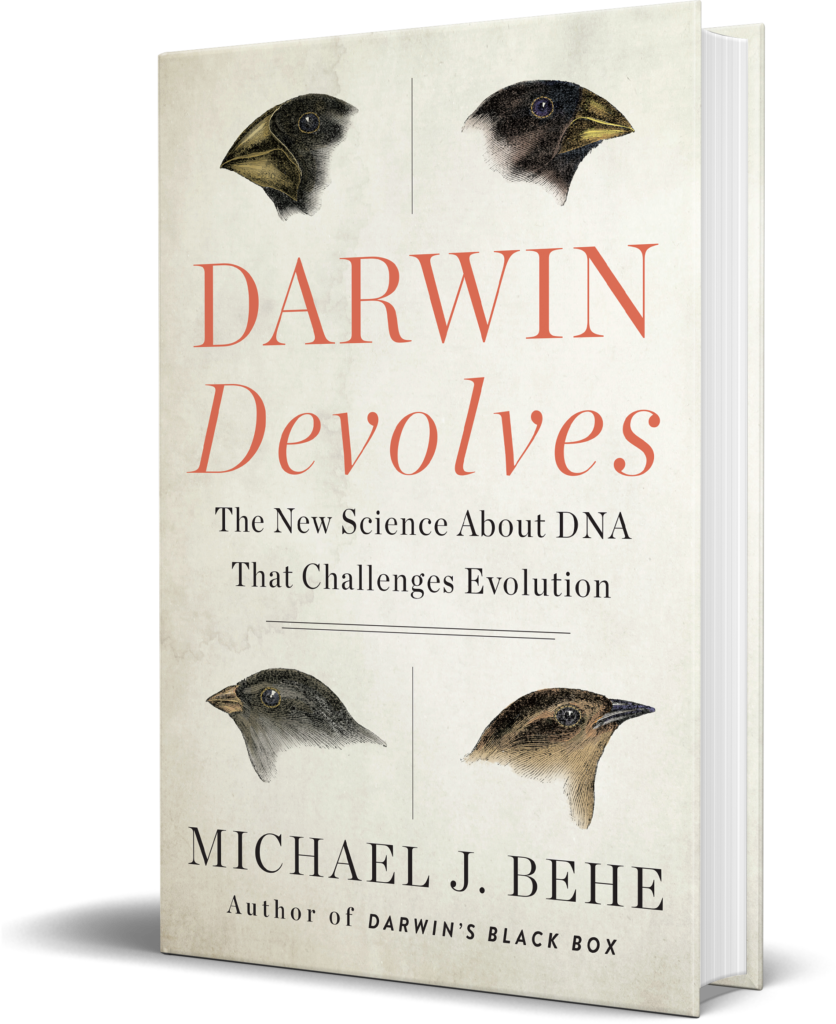
Yesterday, we noted Michael Behe’s response to Lehigh colleagues’ criticism of his new book, Darwin Devolves Here is Part 2:
Recently two of my Lehigh University Department of Biological Sciences colleagues published a seven-page critical review of Darwin Devolves in the journal Evolution. As I’ll show below, it pretty much completely misses the mark. Nonetheless, it is a good illustration of how sincere-yet-perplexed professional evolutionary biologists view the data, as well as how they see opposition to their views, and so it is a possible opening to mutual understanding. This is the second of a three-part reply. It continues directly from Part 1…
In their review Lang and Rice write that perhaps the very fact that there were two copies of a particular gene would itself be helpful, because of the extra activity it would add to the cell. I agree that is possible. However, it is special pleading, because most duplicated genes would not be expected to behave that way. For every extra restriction put on the gene that is supposed to duplicate (such as partial duplication, duplication that joins it to another gene, and so on), a careful study of the topic must adjust the mutation rate downward, because fewer genes/events are expected to meet those extra restrictions. The third and most serious problem Lang and Rice overlook is that they assume without argument that a duplicated gene would be able to integrate into an organism’s biology strictly by Darwinian (or at least unintelligent) processes. Yet not all genes or functions are the same, so critical distinctions must be made. More.
and
It’s hardly news that a group can share strong views on topics of mutual interest to its members, which many on the outside find less than compelling. Theoretical particle physicists, lawyers, members of the military, union members, business people, clergy, and on and on. It would be hard to find a group that didn’t have such shared views. Of course, that includes evolutionary biologists and scientists in general. I would like to delicately suggest that a large chunk of the disconnect (although certainly not the only factor) between the public and biologists over evolution is that, as a rule, biologists share a commitment to Darwin’s theory that the general public does not. That shared commitment leads biologists (and scientists in general) to require substantially less evidence to persuade them of the theory’s verity and scope than someone outside the tribe.
Contra Lang and Rice, it’s preposterous to say that the data “are more than sufficient to convince any
open minded skeptic that unguided evolution is capable of generating complex systems.” Unless one defines a skeptic of Darwin’s theory (the most prominent proposed “unguided” explanation) as closed-minded, a quick visit to the library will disabuse one of that notion. More.
Exactly. Darwinism is magic. No two ways about it. Every time a Darwinian pathway can be thunk up that is even a zillionth plausible, we are expected to assume that that must have been the pathway used because Darwinism is true. It’s just the same as this: You can act like you won the lottery once you have bought a ticket.
No other approach to any history of anything in the world will do that for you. No wonder Darwinism sounds so much like a religion and its adherents are the last to see it.
Amazon Best Sellers Rank: #3,483 in Books (See Top 100 in Books)
- #1 in Developmental Biology (Books)
- #6 in Creationism
- #8 in Science & Religion
Follow UD News at Twitter!
See also: Michael Behe’s response to Lehigh colleagues’ criticism If Behe’s critics were right, new life forms would be popping into existence all the time. But increasingly, political correctness matters so much more than truth to nature that we will be hearing stranger things yet about the Darwinian magic they espouse.
and
Two views of Ben Shapiro’s interview with Steve Meyer A critic, French-Canadian neuroscientist Jean-Francois Gariépy, who appears to be an alt right figure, has made his own vid, at The Public Space reviewing/attacking Shapiro’s interview with Meyer.